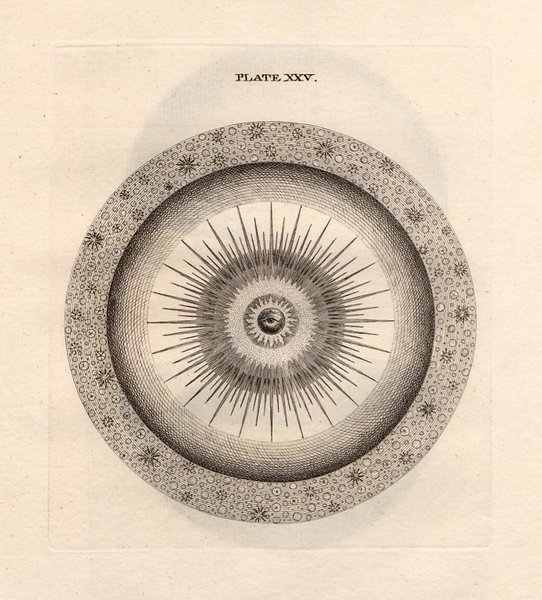History
Jilber Najem and
History
Jilber Najem and
Hölderlin, Held.
My birthday buddy.
Leigh Hunt describes P.B. Shelley’s funeral. Source: https://tinyurl.com/k3cfab6s
Justice 4 Porphy

Plate from An Original Theory or New Hypothesis of the Universe by Thomas Wright, 1750.

Himeji Castle is the largest and most visited castle in Japan, and it was registered in 1993 as one of the first UNESCO World Heritage Sites in the country.[2] The area within the middle moat of the castle complex is a designated Special Historic Site and five structures of the castle are also designated National Treasures.[5][10] Along with Matsumoto Castle and Kumamoto Castle, Himeji Castle is considered one of Japan's three premier castles.[11] In order to preserve the castle buildings, it underwent restoration work for several years and reopened to the public on March 27, 2015.[12] The works also removed decades of dirt and grime, restoring the formerly grey roof to its original brilliant white color.